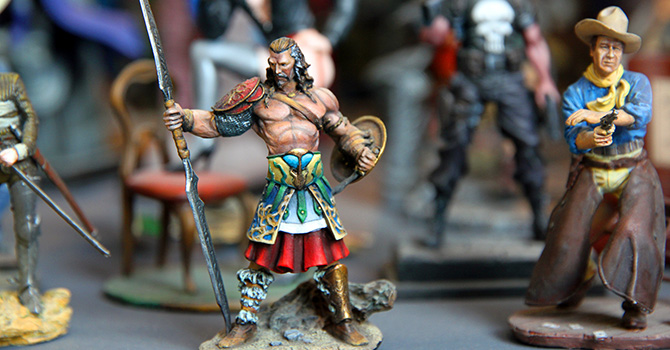Upon learning that an overwhelming number of white evangelical voters -- 81% by some estimates -- voted for Donald Trump in November 2016, I was shocked, dismayed and angry.
How could my fellow evangelicals support a narcissistic reality television star with a checkered moral past and an adverse relationship with the truth? On the evening of the election, as I watched evangelicals take a victory lap on their social media feeds, I wrote a tweet of my own: “If this is evangelicalism -- I am out.”
About a month later, in a piece for The Atlantic, religion writer Jonathan Merritt quoted my tweet. Within hours, two types of messages started filling my inbox. Evangelical friends wrote to encourage me to stay in the fold. “We need your voice,” they told me.
Nonevangelical friends -- Christians and non-Christians alike -- wrote to praise me for my tweet. Many said that it was “about time” I disavowed a religious movement with a long history of racism, patriarchy and intolerance.
After a few months of soul searching and prayer, I concluded that I was not yet willing to abandon the word “evangelical” to describe my religious identity. For me, an “evangelical” is someone who believes in the gospel, the “good news” that Jesus died and rose again to reconcile broken human beings to God.
I believe that evangelicals, motivated by the demand the “good news” makes on our lives, have done wonderful things in this world. We have a long history of loving our neighbors, serving the poor and oppressed, and working for justice. The gospel transforms sinners into saints and offers hope to the hopeless.
Four years later, I am still an evangelical Christian.
Nevertheless, as an American historian, I also know that evangelicals have participated in some of the nation’s darkest moments, and in many cases, have led the way.
I should have seen it all coming. Evangelicals have never been very good at public theology. Trump pulled back the veil on the woeful state of evangelical political engagement and exposed a movement led by (mostly) men who have been unable to articulate a vision for how to live Christianly in a pluralistic society.
One year into the Trump administration, I tried to make sense of all of this in “Believe Me: The Evangelical Road to Donald Trump” (Eerdmans, 2018). For centuries, I argued, evangelical political engagement has privileged fear over hope, power over humility and nostalgia over good history. In 2016, these choices led evangelicals straight into the arms of Donald Trump.
“Believe Me” appeared relatively early in the Trump presidency. This has allowed me to increase my understanding of evangelical Trumpism through the works of others and has given me time to see how my thesis about fear, power and nostalgia holds up against new interpretations.
While I still stand by my argument in “Believe Me,” several writers and scholars have forced me to think about “the 81%” with more complexity and nuance.
One of those authors is Calvin University historian Kristin Kobes Du Mez. Her “Jesus and John Wayne: How White Evangelicals Corrupted a Faith and Fractured a Nation” maintains that “militant masculinity” played a significant role in evangelical support for Trump. According to Du Mez, evangelicals embrace “an ideology that enshrines patriarchal authority and condones the callous display of power, at home and abroad.”
In “Believe Me,” I defined Trump as a political strongman who evangelicals believed would protect them from liberals, socialists and global terrorists. Du Mez adds breadth and depth to this strongman thesis by focusing less on the evangelical belief that Trump is “strong” and more on the fact that he has a particular view of what it means to be a “man.”
“Jesus and John Wayne” has enabled me to see things I had not before seen about the evangelical propensity for rugged individualism. Evangelical men read books and attend conferences that teach them how to be “wild at heart,” “promise keepers” and “tender warriors” for Christ.
When it comes to politics, they want a president who, to quote Dallas pastor Robert Jeffress, is the “meanest, toughest son of a gun” they can find. Trump is their guy.
As I argued in “Believe Me,” there has always been a strong connection between American evangelicalism and white supremacy. For example, it is impossible to understand the Southern Baptist Convention -- past and present -- without acknowledging the racial attitudes that shaped the nation’s largest Protestant denomination.
Moreover, there was plenty of overlap between early-20th-century fundamentalists and the Ku Klux Klan. Many white evangelicals also opposed the Civil Rights Act of 1964 and defended their right to maintain segregated schools.
Sarah Posner’s “Unholy: Why White Evangelicals Worship at the Altar of Donald Trump” covers this ground and much more. She shows the continuity between the past and the present regarding evangelical views on race.
A veteran religion reporter, Posner connects the dots between Trump’s evangelicals and the alt-right; the white supremacists who invaded Charlottesville, Virginia, in August 2017; anti-LGBTQ activism; and opposition to Black Lives Matter.
While Du Mez and Posner have written for general audiences, Davidson College sociologist Gerardo Martí’s book “American Blindspot: Race, Class, Religion and the Trump Presidency” is a thorough and broad-reaching scholarly analysis of evangelical Trumpism to date. He has read widely in the history and sociology of American evangelicalism, making his book a useful primer for pastors, laypeople, religion reporters and academics.
Martí resists simple or reductionist explanations, preferring to see several interrelated causes at work in evangelical support for Trump: the history of the evangelical views on race, the movement’s commitment to a religious form of American exceptionalism, the rise of the Christian right in American politics and, more immediately, the negative response to the presidency of Barack Obama.
He also emphasizes the long-standing evangelical commitment to libertarianism and free-market politics. Those affiliated with the prosperity gospel found their way to Trump because he presented himself as a successful business executive.
Little has changed since 2016. Trump continues to stoke fear among evangelicals who see their white Christian America slipping away.
Evangelical leaders -- many of whom I have described as the “court evangelicals” for their regular appearances at the White House -- continue to bow to political power in their efforts to win the culture for Christ.
Evangelical voters still long for a return to a golden age that is never coming back -- or more likely, never existed in the first place. Whatever happens in November, we are now in a much better place to understand the evangelicals who will once again vote for Donald Trump.



















